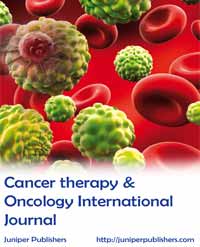FOLFOX4 as First Line Treatment in Advanced Hepatocellular Cancer, when Sorafenib is not Available: Can it be an Option? - Juniper Publishers

Cancer Therapy & Oncology - Juniper Publishers Abstract Protocol FOLFOX4 is a promising treatment option in advanced hepatocellular cancer patients as shown by Asian phase III trial - the EACH study. Given that most of the targeted therapies have not proven to be clinically significant or clinically relevant in the treatment advanced hepatocellular cancer, only sorafenib is at present an approved option the world over. Since sorafenib is not an affordable option, especially in developing countries where the burden is highest or for those who cannot be qualified for sorafenib in the western world, what are other options. After a thorough literature review it seems that if not Sorafenib, then probably we can treat patients with advanced hepatocellular cancer with chemotherapy protocol FOLFOX4. FOLFOX4 protocol has proved its safety and efficacy among advanced hepatocellular cancer patients in a phase III randomized trial - the EACH trial. EACH trial showe...


